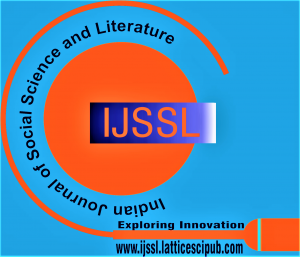![]()
Unmasking Aadhar Authentication Issues: A Case Study of Biometric and PDS Access in Mundoti, Rajasthan
Harikrishan Jakhar
Harikrishan Jakhar, Department of Culture & Media Studies, Central University of Rajasthan, Ajmer (Rajasthan), India.
Manuscript received on 08 February 2024 | Revised Manuscript received on 16 February 2024 | Manuscript Accepted on 15 March 2024 | Manuscript published on 30 March 2024 | PP: 28-31 | Volume-3 Issue-3, March 2024 | Retrieval Number: 100.1/ijssl.C111403030324 | DOI: 10.54105/ijssl.C1114.03030324
Open Access | Ethics and Policies | Cite | Zenodo | OJS | Indexing and Abstracting
© The Authors. Published by Lattice Science Publication (LSP). This is an open-access article under the CC-BY-NC-ND license (http://creativecommons.org/licenses/by-nc-nd/4.0/)
Abstract: This paper goes into great depth about how complex India’s Aadhaar-based identification system is to understand, especially when it comes to how important it is for people to be able to access simple services. Most of the study focuses on Mundoti, a village in Kishangarh, Rajasthan, where the people’s farming and hard work-based lifestyles have made it challenging to use Aadhaar. The paper examines the prevalence of negative fingerprinting and its impact on individuals’ ability to utilise the Public Distribution System (PDS). It does this through a case study and direct and indirect research methods. Through conversations, it examines the connection between the requirement to wear fingerprints at work, demographics, and any potential effects on PDS. The study indicates that the people of Mundoti struggle with Fingerprint authentication due to their agricultural work. This means they are facing difficulties in obtaining essential food aid. The study indicates that these issues require attention. The people who live in Mundoti have trouble verifying their Aadhaar cards because their fingerprints are worn down from working hard in agriculture. The study also shows that age, gender, and occupation have a significant effect on the likelihood of experiencing identification problems. The paper argues that these fingerprintrelated issues should be addressed so that crucial social welfare programs can be implemented successfully in rural India. It suggests creating different ways to prove one’s identity, such as eye scans or private biometric-based solutions, so that vulnerable people aren’t kept from essential services like PDS as much as possible. This paper contributes to the broader conversation about local ecosystems that involves everyone. It emphasises the importance of adapting rules and procedures to meet the needs of people living in rural areas.
Keywords: Aadhar Authentication, PDS Access, Rural Exclusion, E-Governance
Scope of the Article: Political Science
